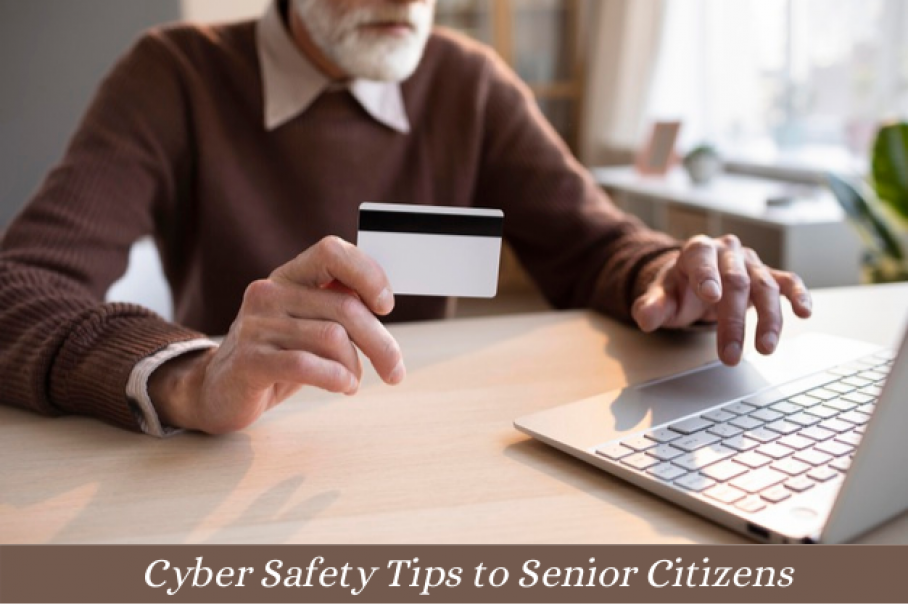
Online scams are quite common today and the elderly need to have their guard up in order to stay safe. In fact I am reminded of such an incident that happened years back and was quite personal to me. One of my very close cousins had received a mail in her inbox stating that her account would be credited with millions of dollars. Her father , my uncle immediately called me and shared the good news that he too would have a part in the money she was about to receive. I was shocked because I knew that nobody would shell out that kind of money freely ( there is no free lunch ). I asked my uncle to forward me the email so that I could take a look at it as well. And that's when I saw the catch - this clause that required the beneficiary to deposit ‘X’ amount of dollars in the benefactor’s account in order to receive the millions that they were being promised. I was livid as I was clearly able to see the trap that lay ahead. But how was I going to convince my uncle from falling into that trap. He would definitely think of me as someone trying to hinder the blessings coming his way. I gathered all my courage and told him the truth. At first it seemed like a herculean task getting him to see the folly of the plan and convincing him that he was being duped. However after 3 to 4 pretty intense conversations, I was successful at convincing my uncle and he waved the red flag to my cousin as well.
And that's why I decided to write this post - so that our senior citizens would not be duped into believing everything that sounds legitimate on the internet but in reality is too good to be true.
Cyber safety tips for Senior Citizens
Do NOT believe that someone who doesn't know you is going to give you money . Cyber frauds are lurking all around the internet waiting to manipulate unsuspecting people.
Passwords - When setting up passwords include lower case alphabets, upper case alphabets, symbols and numbers ( please don't forget to jot it down in your personal diary).
NEVER REVEAL YOUR PASSWORD TO ANYONE.
Online banking and transactions are very convenient but are also platforms that are prone to online fraud . Enter information only on security enabled sites.
Websites starting with HTTP are totally unsafe.
Websites starting with HTTPS are secured. So please don't forget the ‘S’.
PHISHING SCAMS - Do not volunteer information to anyone on the internet who asks you for your personal information or your bank account number. Do not trust any such emails however authentic looking they may be. Social hacking where people ring you up to get your password is another part of phishing scams.
Watch out for these phrases. Don't fall for those scamming gimmicks that tell you :Offer only for today ...so buy now .
Your bank account will be closed today if we don't hear from you by tomorrow .
Always remember that you CAN'T win a lottery unless and until you have entered a lottery. Such online frauds ask you to share your account number and dupe you and empty you of all your money in the bank account. So stay away from them.
With a little bit of caution and exercising of sound judgement, it is possible for all of us to stay safe on the internet.
Author: Team 60plus India
Keywords : Online frauds, Cyber fraud, online scam, Social hacking, cyber crime , scamming, phishing scams.
Hashtags : #Online fraud #phishing # cyber fraud #internet scam#cyber crime
#cybersecurity #money #scammer alert